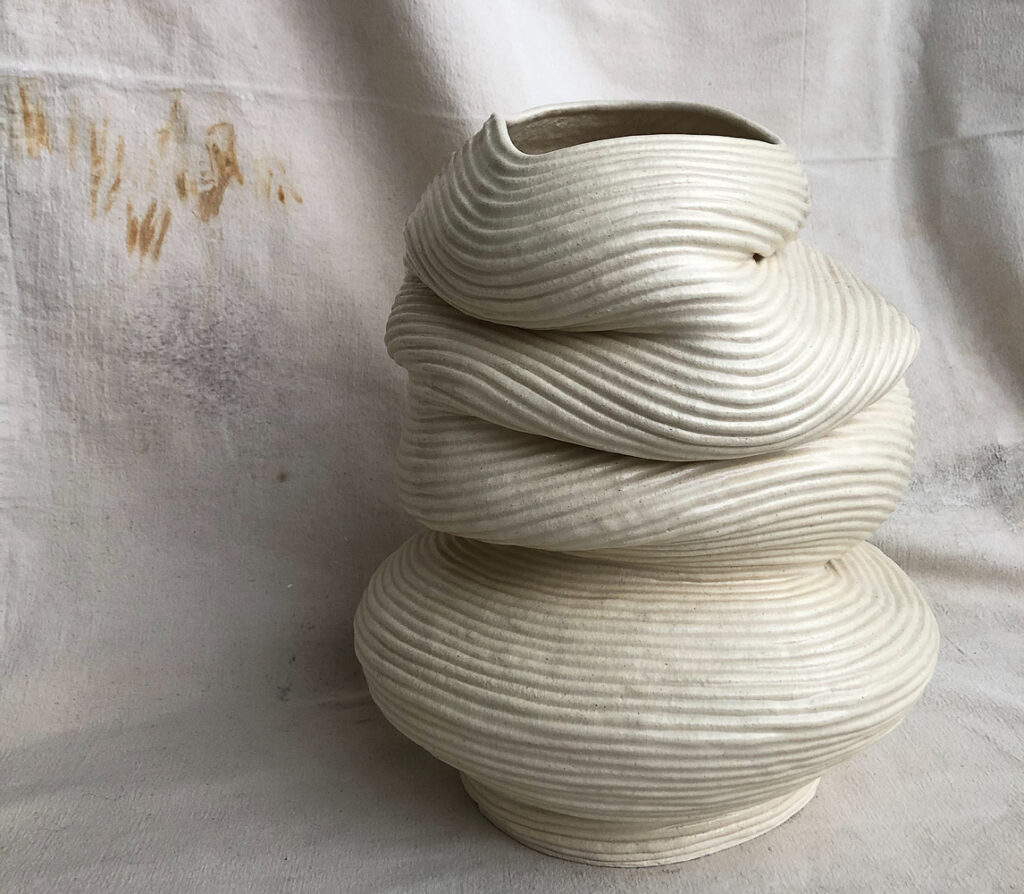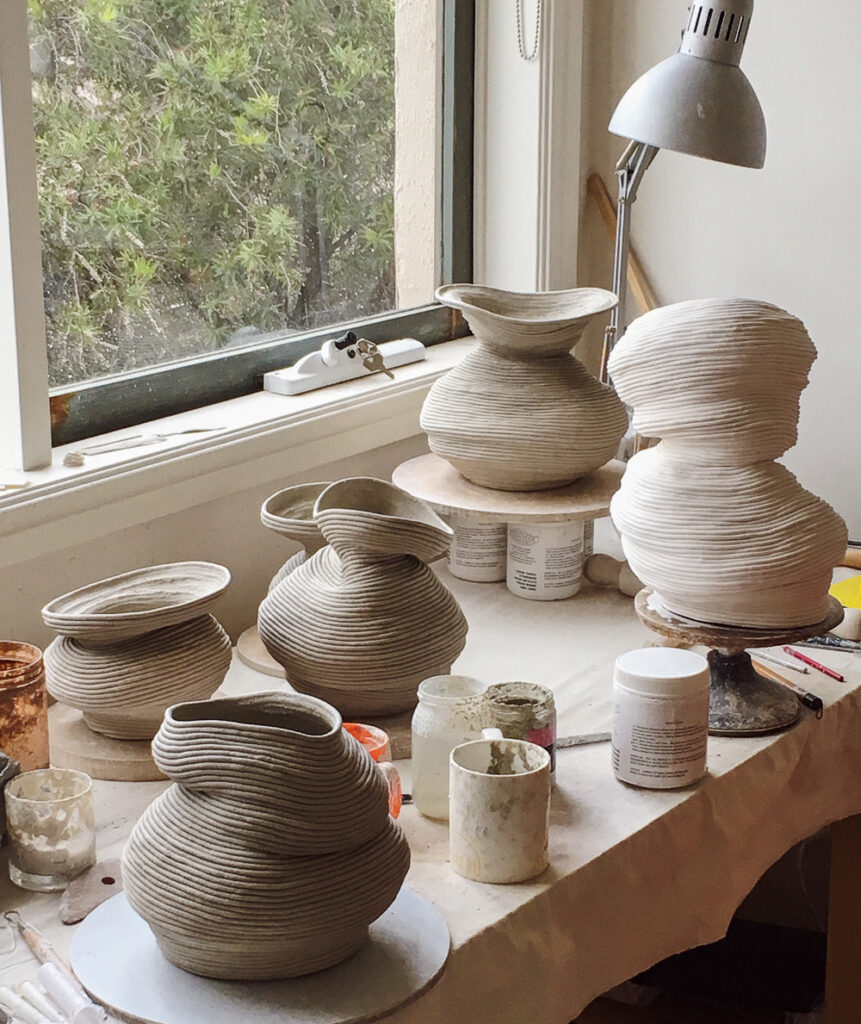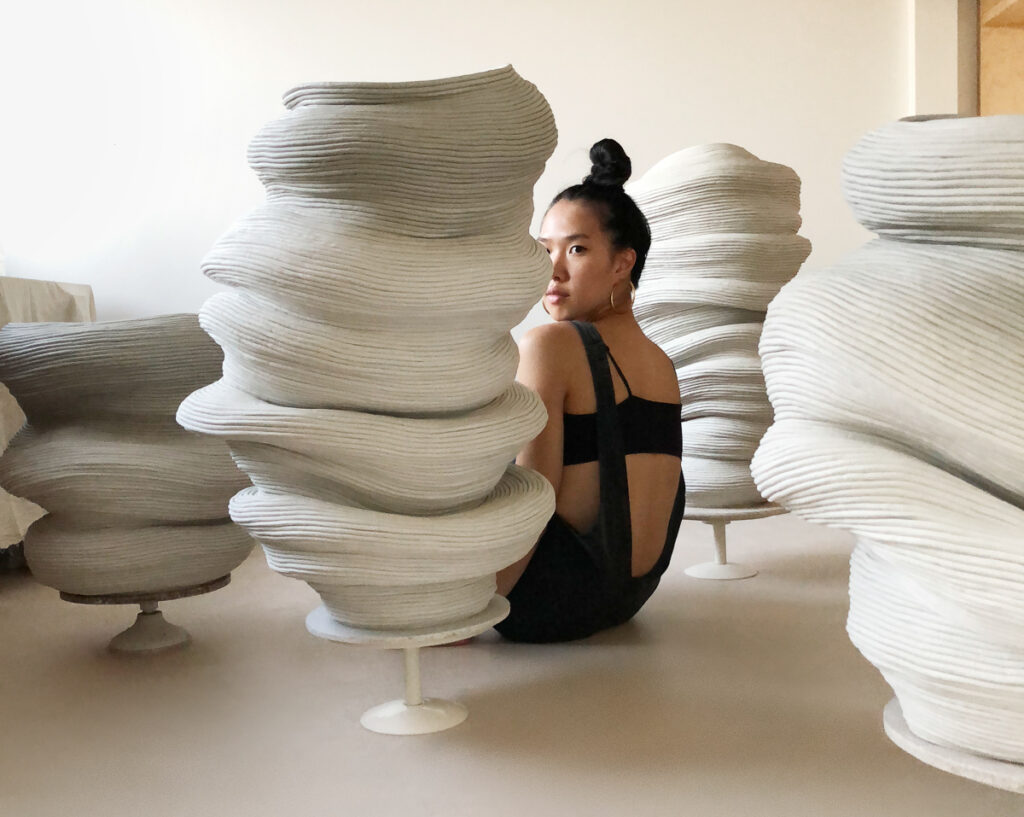
The June Laurel is awarded to Zhu Ohmu, whose coiled ceramic vessels gracefully embody a precarious world.
There have been recent experiments in using the coiling technique with 3D printers to produce ceramic vessels. Zhu Ohmu takes this a step further by returning the process to the hand. This follows the principle of biomimicry, where human making process reflects those processes in nature, such as hive-making. The processes of stacking, folding, pressing, and pulling, enable the materiality of moist clay to be expressed in the final work.

Zhu Ohmu reflects on the material and conceptual challenges of her work:
All ceramicists will tell you about coming to terms with failures. Cracked greenware when clay is dried too quickly, a piece exploding in the kiln, a glaze that didn’t turn out quite right. During a firing temperatures go up to thousands of degrees celsius—so you really have to submit to the kiln. I think over the years all the disappointments and the exercising of wabi-sabi have helped me build a very strong resilience against emotional traumas in other areas of life.
Interestingly, my biggest challenge so far has not been technical but rather mental. At the moment I felt I have taken the medium and this particular process as far as I can take it. It feels resolved to me. Making more coil pots without developing conceptually has started to feel like manufacturing. It is not where my heart is and I’ve found it hard to physically make when I’m feeling uninspired… when there is no passion for my hands to transmute into external objects.
After a big break from the studio, I’ve had some time to think about where to take my practice and if and how my ceramic works can continue to be a part of it. I am focused on finding ways of encouraging and fostering environmental cognisance, and I am beckoned to exploring other mediums and disciplines that might be able to articulate these ecocritical ideas more poignantly.
However, spreading awareness means I will need to be considerate of my audience, and at present most of my audience are largely interested in coil pots. So a way around this would be to advance my socio-ecological research alongside my ceramic practice.
Humans have an innate propensity for noticing beauty, and that beauty can be given a subtle subversive function. The appeal of coil pots can be used to seduce and draw people in, to invite deep noticing and further probing into the interiors of the artist’s mind with which other thoughts and expressions can be uncovered and absorbed. Case in point, without the coil pots my sentiments on the state of our planet would not be published.

Zhu Ohmu lives in Narrm, Melbourne and is represented by Gallery Sally Dan-Cuthbert. Visit www.zhuohmu.com and follow @zhu.ohmu.

